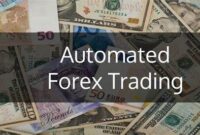Forex Trading Individual – , or foreign exchange trading, has become increasingly accessible to individual investors. With the potential for substantial profits and a variety of trading strategies, many are drawn to this dynamic market. This guide will cover the essentials of forex trading for individual investors, including how to get started, effective strategies, and key considerations.
Table of Contents
ToggleForex Trading for Individual Investors
Forex trading involves buying and selling currency pairs to profit from fluctuations in exchange rates. Unlike other financial markets, forex operates 24 hours a day, five days a week, allowing for continuous trading across different time zones.
Why Trade Forex?
- Liquidity: The forex market is the largest financial market globally, with a daily trading volume exceeding $6 trillion. This high liquidity ensures that trades can be executed quickly and with minimal slippage.
- Accessibility: With online brokers and trading platforms, individual investors can participate in the forex market with relatively small amounts of capital.
- Leverage: Forex trading often allows for significant leverage, enabling investors to control larger positions with a smaller investment. However, leverage can amplify both profits and losses.
Getting Started with Forex Trading
Choose a Reliable Forex Broker
Selecting the right broker is crucial for successful trading. Consider the following factors when choosing a broker:
- Regulation: Ensure the broker is regulated by a recognized authority (e.g., FCA, ASIC).
- Trading Platform: Look for user-friendly platforms with robust tools for analysis and execution.
- Spreads and Commissions: Compare the costs associated with trading, including spreads and any commission fees.
Open a Trading Account
Once you have chosen a broker, you will need to open a trading account. Most brokers offer different types of accounts, such as:
- Standard Accounts: Ideal for most traders, offering access to various currency pairs.
- Mini or Micro Accounts: Allow for smaller trades, which can be beneficial for beginners.
- Demo Accounts: Provide a risk-free environment to practice trading strategies using virtual funds.
Develop a Trading Plan
A solid trading plan is essential for individual investors. Your plan should include:
- Goals: Define your trading objectives, both short-term and long-term.
- Risk Management: Establish guidelines for how much capital you are willing to risk on each trade.
- Trading Strategies: Outline the methods you will use for entering and exiting trades.
Key Trading Strategies for Individual Investors
Technical Analysis
Technical analysis involves using charts and indicators to forecast future price movements based on historical data. Key tools include:
- Candlestick Patterns: Help identify potential reversals and continuation patterns.
- Moving Averages: Smooth price data to identify trends and potential support/resistance levels.
- Relative Strength Index (RSI): Indicates overbought or oversold conditions in the market.
Fundamental Analysis
Fundamental analysis involves evaluating economic indicators and news events that can influence currency values. Important factors include:
- Interest Rates: Changes in central bank rates can significantly affect currency values.
- Economic Reports: GDP, unemployment rates, and inflation data provide insights into economic health and potential currency movements.
Swing Trading
Swing trading involves holding positions for several days to capitalize on medium-term price movements. This strategy allows traders to take advantage of trends without the pressure of constant monitoring.
Risk Management Techniques
Use Stop-Loss Orders
Setting stop-loss orders can help limit potential losses on trades. A stop-loss order automatically closes your position when the price reaches a specified level.
Determine Position Size
Calculate the appropriate position size based on your total capital and risk tolerance. This ensures you are not overexposed to any single trade.
Diversify Your Trades
Diversification helps reduce risk by spreading investments across different currency pairs or asset classes. This approach minimizes the impact of adverse movements in any single market.
Staying Informed and Educated
Economic Calendar
Utilize an economic calendar to track important economic events and data releases. Awareness of upcoming events can help you prepare for potential market volatility.
Continuous Learning
Stay informed about forex trading through online courses, webinars, and trading forums. Engaging with other traders can provide valuable insights and tips.
Conclusion
Forex trading offers individual investors a unique opportunity to engage in a dynamic and potentially profitable market. By choosing a reliable broker, developing a solid trading plan, and employing effective strategies and risk management techniques, you can navigate the complexities of forex trading and work towards achieving your financial goals.




